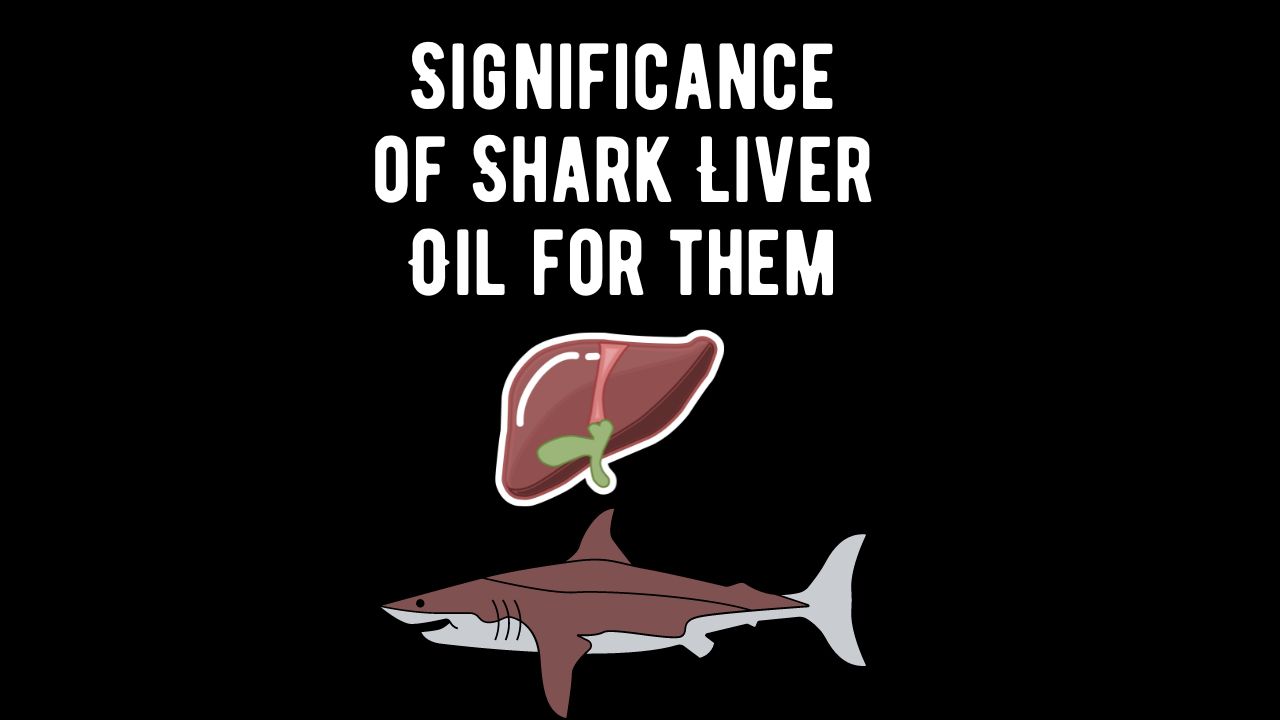
How is Shark Liver Oil beneficial for them? Shark liver oil is a remarkable substance that holds various benefits for sharks, playing a crucial role in their survival and adaptation to the marine environment. This article explores the functions and advantages of shark liver oil in supporting these oceanic predators’ health and physiological processes.
Composition and Alkylglycerols:
Shark liver oil is renowned for its high concentration of alkylglycerols, which are unique compounds within the realm of fats. These alkylglycerols have garnered attention for their suggested anticancer effects and their role in supporting the immune system. Researchers are actively exploring the therapeutic potential of these compounds, aiming to unlock their benefits for human health.
Squalene: A Key Component:
Squalene, a compound found abundantly in shark liver oil, emerges as a key player in the composition of this substance. Beyond its role in buoyancy regulation, squalene is gaining attention for its potential benefits in skincare and cosmetics. The compound’s moisturizing properties and its compatibility with human skin make it a sought-after ingredient in various cosmetic formulations.
8 Benefits of Shark Liver Oil for Sharks
1. Buoyancy Regulation:
Shark liver oil, specifically the oil from deep-sea sharks like the liver oil of the deep-sea shark known as the gulper shark, contains compounds that aid in buoyancy regulation. The oil in the liver helps sharks control their depth in the water column, allowing them to navigate their surroundings effectively.
2. Thermal Insulation:
Deep-sea environments often come with low temperatures, and shark liver oil serves as an excellent thermal insulator. The oil contains substances that contribute to the insulation of vital organs, preventing heat loss in cold waters. This adaptation is particularly crucial for sharks inhabiting deep and cold oceanic zones.
3. Energy Storage and Reserve:
The liver is a significant site for energy storage in sharks. The oil stored in the liver serves as a concentrated source of energy, providing fuel for the shark’s metabolic needs. This is especially important during periods of fasting or when prey is scarce.
4. Vitamin Synthesis:
Shark liver oil is rich in vitamins, including vitamins A and D. These vitamins are essential for various physiological functions, such as maintaining healthy skin, supporting vision, and promoting calcium absorption for bone health. The synthesis and storage of these vitamins in the liver contribute to overall shark well-being.
5. Immune System Support:
The components found in shark liver oil, such as alkylglycerols, are believed to have immune-boosting properties. Sharks, like other animals, encounter various pathogens in their environment, and a robust immune system is vital for their health. Shark liver oil may play a role in supporting the immune responses of these marine predators.
6. Reproductive Health:
For some shark species, the liver is intimately connected to reproductive health. The stored energy in the liver can be crucial for female sharks during gestation. Additionally, the vitamins present in the liver oil may contribute to the overall reproductive success of sharks.
7. Adaptation to Extreme Environments:
Sharks are known for their ability to inhabit a wide range of environments, from shallow coastal waters to the deep sea. The unique properties of shark liver oil contribute to their adaptability, allowing them to thrive in conditions that might be challenging for other marine species.
8. Energy Reserves and Drift Dives:
Sharks, being apex predators in the marine ecosystem, require substantial energy reserves for their hunting and survival. The oil stored in their livers serves as a crucial energy store, and researchers have devised innovative methods to estimate the oil content.
By measuring the rate of descent during drift dives, scientists can infer the amount of oil in a shark’s liver, as it accounts for up to a quarter of their body weight. The delicate balance between utilizing these energy reserves and maintaining buoyancy adds a layer of complexity to the physiological adaptations of sharks.
Conclusion:
Shark liver oil stands as a multifunctional substance that goes beyond being a source of energy. Its diverse benefits, ranging from buoyancy control to immune system support, underscore the adaptability and resilience of sharks in the dynamic marine ecosystem. Understanding the importance of shark liver oil not only sheds light on the intricacies of shark physiology but also emphasizes the need for conservation efforts to ensure the well-being of these essential oceanic creatures.






